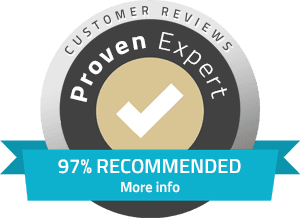Businesses can use SEO to attract more qualified leads by focusing on strategies that align with user intent, optimizing for relevant keywords, and providing valuable content that addresses the needs of their target audience. Here are some key strategies:
1. Understand and Target User Intent
Keyword Research: Identify keywords that potential customers are using at different stages of the buying cycle. Use tools like Google Keyword Planner, Ahrefs, or Semrush.
Intent-Based Keywords: Focus on keywords that indicate a strong intent to purchase or take action, such as “buy,” “best,” “review,” and “near me.”
2. Optimize On-Page SEO
High-Quality Content: Create content that answers the questions and solves the problems of your target audience. Use blog posts, how-to guides, case studies, and detailed product descriptions.
Meta Tags: Optimize title tags, meta descriptions, and headers with relevant keywords to improve visibility and click-through rates.
Internal Linking: Use internal links to guide visitors to related content and product/service pages, improving the overall user experience and increasing the likelihood of conversions.
3. Create Targeted Landing Pages
Specific Solutions: Design landing pages that address specific problems or needs of your target audience, with clear calls to action (CTAs).
Lead Capture Forms: Include forms to capture visitor information in exchange for valuable content like eBooks, whitepapers, or webinars.
4. Local SEO Optimization
Google My Business: Optimize your Google My Business listing with accurate information, high-quality images, and customer reviews.
Local Keywords: Use location-based keywords to attract local customers searching for products or services in your area.
Local Citations: Ensure your business is listed in local directories and maintain consistent NAP (Name, Address, Phone Number) information.
5. Content Marketing
Educational Content: Publish blogs, articles, and videos that educate your audience about your industry, products, and services.
Case Studies and Testimonials: Share success stories and testimonials to build trust and demonstrate the value of your offerings.
Regular Updates: Keep your content fresh and relevant by regularly updating existing content and adding new insights.
6. Technical SEO
Site Speed: Ensure your website loads quickly to reduce bounce rates and improve user experience.
Mobile Optimization: Make sure your website is mobile-friendly, as a significant portion of traffic comes from mobile devices.
Structured Data: Use schema markup to help search engines understand your content better and enhance search visibility with rich snippets.
7. Backlink Building
Quality Backlinks: Acquire backlinks from reputable and relevant websites to improve domain authority and search engine rankings.
Guest Blogging: Write guest posts for authoritative websites in your industry to reach a wider audience and gain valuable backlinks.
8. Analytics and Continuous Improvement
Monitor Performance: Use tools like Google Analytics and Google Search Console to track the performance of your SEO efforts.
A/B Testing: Test different headlines, content formats, and CTAs to see what works best in driving conversions.
Adjust Strategies: Continuously refine your SEO strategies based on performance data and emerging trends.
9. Engage with Social Media
Content Sharing: Share your content on social media platforms to increase visibility and drive traffic to your website.
Engage Followers: Interact with your audience on social media to build relationships and encourage sharing of your content.
- +91 8300 665471
- info@vestaoneup.com



